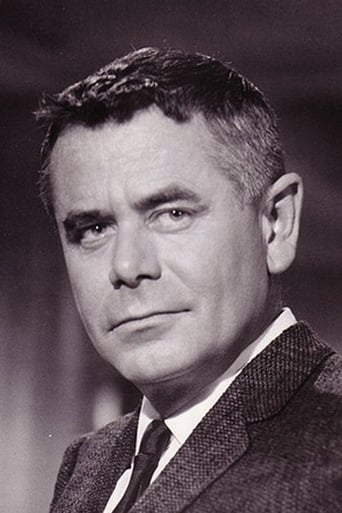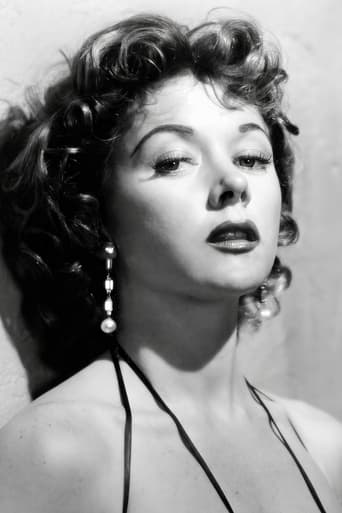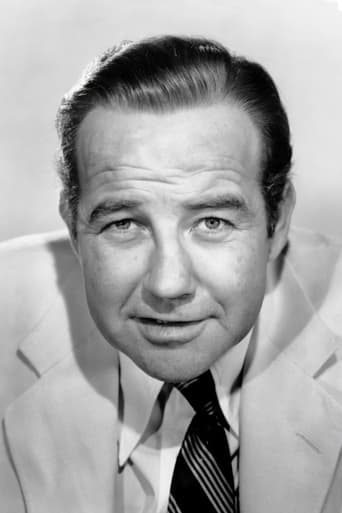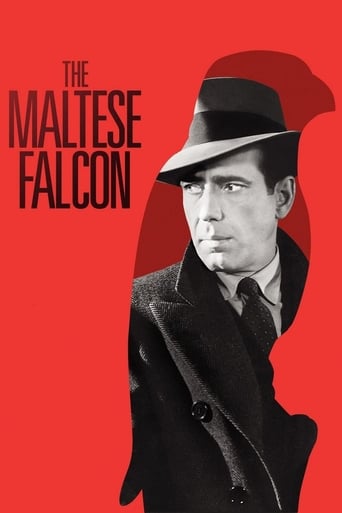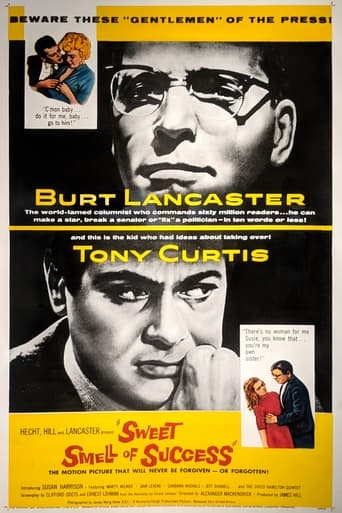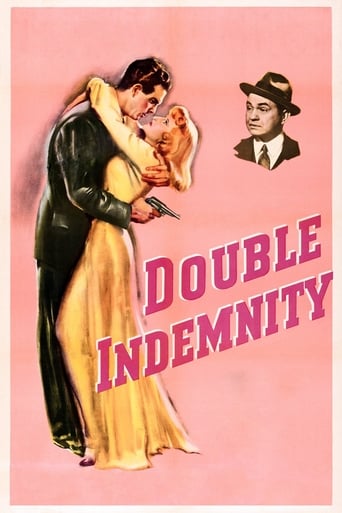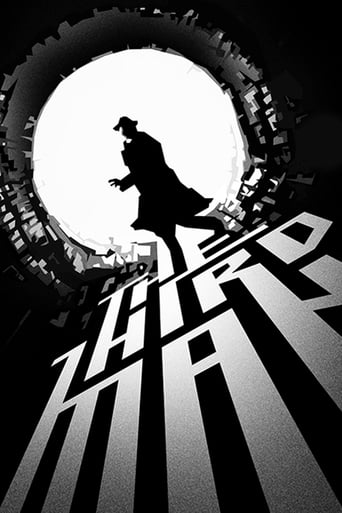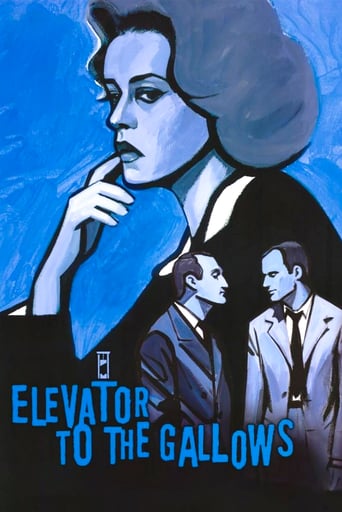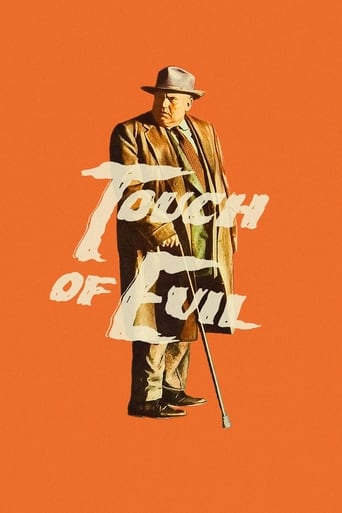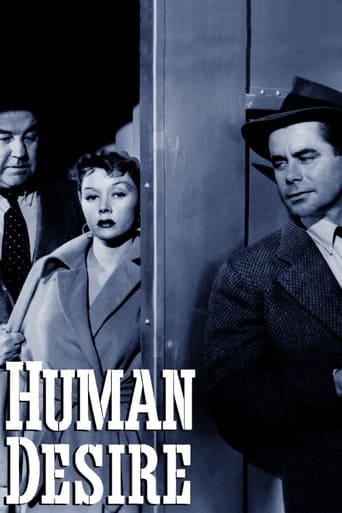
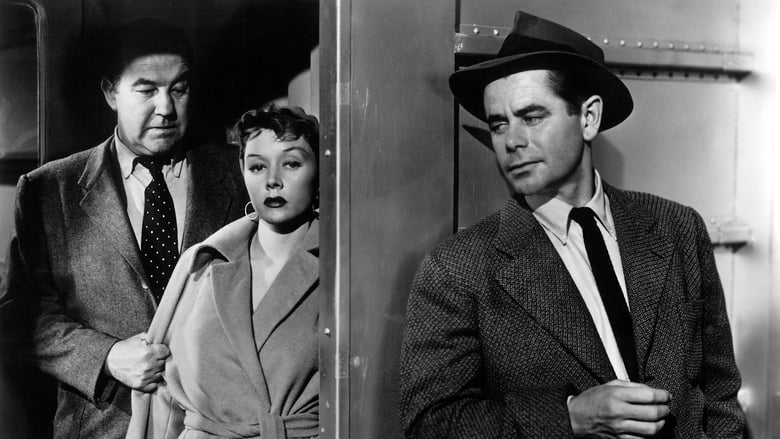
Human Desire (1954)
Jeff Warren, a Korean War vet just returning to his railroad engineer's job, boards at the home of co-worker Alec Simmons and is charmed by Alec's beautiful daughter. He becomes attracted immediately to Vicki Buckley, the sultry wife of brutish railroad supervisor Carl Buckley, an alcoholic wife beater with a hair-trigger temper and penchant for explosive violence. Jeff becomes reluctantly drawn into a sordid affair by the compulsively seductive Vicki. After Buckley is fired for insubordination, he begs her to intercede on his behalf with John Owens, a rich and powerful businessman whose influence can get him reinstated.
Watch Trailer
Cast
Similar titles
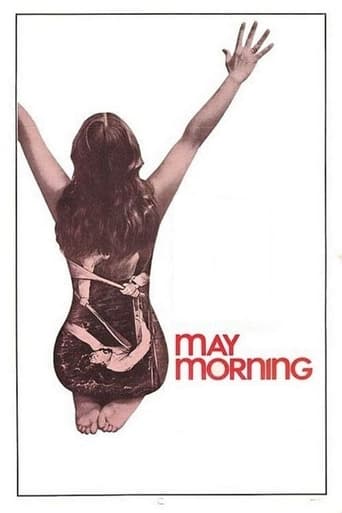
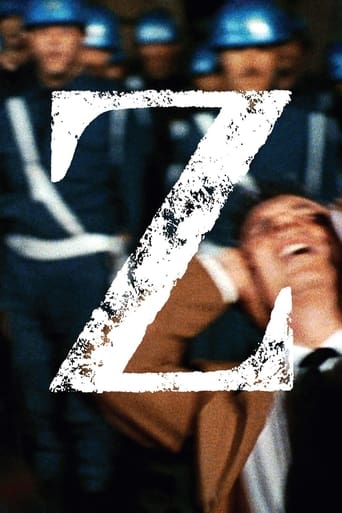
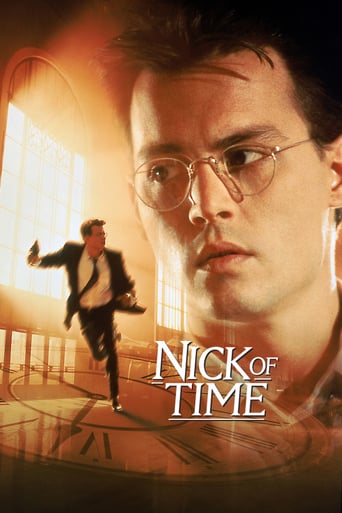
Reviews
The Age of Commercialism
Best movie ever!
An old-fashioned movie made with new-fashioned finesse.
There are moments in this movie where the great movie it could've been peek out... They're fleeting, here, but they're worth savoring, and they happen often enough to make it worth your while.
Fritz Lang's Human Desire is well worth the watch for any fan of film noir, as it is truly competent in that respect. Glenn Ford and Gloria Grahame are back together following the superbly good The Big Heat a year earlier, although this time the result isn't nearly as interesting. Grahame as the femme fatale is the high point of this movie for me, Glenn Ford certainly doesn't disappoint, and although I was never a big fan of Broderick Crawford, his performance here is apt.These back-to-back movies starring Glenn Ford and Gloria Grahame remind me of Lang's earlier works, The Woman in the Window and Scarlet Street, both starring the wonderful Edward G. Robinson and Joan Bennett in some of the finest film noirs out there.Thinking of that connection, I can't help but compare the ending of The Woman in the Window to the ending of Human Desire. The former's ending left me flabbergasted; I won't spoil it, but it made my jaw drop. Some would say it was a terrible ending, but I don't think so when considering the limitations of the Hays code back then. In that context, I feel like the ending of The Woman in the Window was the best choice Lang could have made to avoid compromising the story.The ending of Human Desire, however, is utterly disappointing. It can hardly be said to be an ending at all, as it feels more like the result of the production running out of money, time or creativity than anything else. What's even stranger is how this ending ties in with the Hays code limitations considered earlier. Granted, this is much later than The Woman in the Window, but unless I'm mistaken, the film still fell under the code's scrutiny; from what I read, the nail in the coffin only came in 1959 with films like Some Like It Hot. Suffice to say, the bad guy gets away with it in this one, although this doesn't feel remotely satisfying or interesting, more like an afterthought.Regardless of the poor ending, Human Desire is still well worth the watch and is a fine example of later film noir.
Dear Marlon Brando,I heard you rejected Human Desire because you were scandalized that the guy who made M was making this piece of trash. I agree with you. Sort of.The first half wasn't all that bad. Glen Ford always plays himself, you get Glen Ford in every single movie of his and not the character. I have always liked him. And Gloria Graham is terrific. She is not a conventional beauty but she oozes sex. I guess Broderick Crawford has done better roles than this one.The scenes in the train reminded me of another noir called "The Narrow Margin" which came out a couple of years before Human Desire. But the film never really goes anywhere after a certain point. All the whining and crying by the two female characters towards the end made it tough to watch. It was like a noir in the first half with the tough working class characters and their attitude towards life. The second half was like an intense weepie.All said and done, this film could have been named Horny Males or something.And Marlon, considering some of the films you did in the 50s and 60s ..... this film wouldn't have been all that bad a choice.Best Regards, Pimpin.(6/10)
Unlike most of the reviews here, I see this films as a treatise on broken and betrayed love.First there is the innocent love of the family daughter who looks up to Jeff as the hero returned from the war. This love is betrayed by Jeff not being the man of her dreams, but rather somewhat proficient womanizer who acquires interest in Vicky, the wife of his work colleague Carl.Second there is the love of Vicki to her husband Carl, which is betrayed by Carl's stupid and insensitive character. Carl, having been fired from his job because of his rowdy nature, pushes Vicki against her will to 'negotiate' the job back through Vicki's former 'contacts' to a top level railroad employee Owens. Vicki refuses multiple times - a history of abuse is hinted between her and Owens. However insensitive Carl fails to catch the reasons of Vicki's refusal and pushes her against her will until she yields to her husband. Only when now disillusioned Vicki returns from a hours long 'negotiations' with her former boss and heads to the shower Carl begins to suspect something is wrong.Third, there is the brutal, dependent and jealous love of Carl to his wife Vicki. Carl, smitten by jealousy, develops a plan. He forces Vicki to play along by writing a letter summoning Owens to a secret rendezvous in a train sleeper carriage. There Carl murders him and takes Vicki's letter from the body to be used as a guarantee against her.Through Carl's actions love between them is broken. Consequently Vicki begins an affair with Jeff, who saw her in the train at the night of the murder. The relationship develops into love, with the pair meeting behind Carl's back at railroad yard shacks and Vicki's relative's apartment. However in a small town such an affair cannot be concealed. The ill-fated and ill-chosen desire causes suffering and alienation. A plan develops to rid Vicki of Carl - now a once again sacked drunk who drowns his sorrows at the local watering hole. But Jeff can't bring himself to kill such a defenseless man. He grabs the letter, unknown by Carl, and returns it to Vicki at the same time dumping her. Vicki, who is now free, pleads and cries for Jeff to take her, but he refuses coldly and walks away from the mess, while suspecting that Vicki has for the whole time only been using him.The definitive moment of the movie for me comes at the train car in which Vicki, now free but manifestly alone, plans to ride away. Carl stumbles in the car and just in the same way as Vicki moments ago he in a humiliated manner laments his love and need for her and pleads for her to stay, even offering to give her the incriminating letter (which she already has). But as Vicki had learned nothing. Just like Jeff walked away she too rejects Carl's desperate plea, similar to her own. When the train with Jeff in its cabin - dance tickets given to him by the employee's daughter in his hand - speeds in the distance, Carl strangles Vicki in the compartment.Love is actually not the Hollywood solution to everything and the force that makes one overcome every obstacle. Rather, it can be very ugly, confusing and depressing human desire.I'm giving this movie a rare 10/10. Aside from excellent directing and especially wonderful lighting (e.g. Jeff and Vicki in the rail yard shack: when you try to hide, you are actually right at the spotlight) I very much enjoyed Lang's interpretation of the source material. Unlike Zola's original, which seems nihilistic to me, Lang's interpretation is realistic and does not fall into unnecessary celebration of inhumanity. That is it's strength. Though the murky waters of depraved love abound, there is yet hope and a glimpse of true love in the form of the dance tickets in Jeff's hands.
Human Desire is directed by Fritz Lang and adapted for the screen by Alfred Hayes from the story "The Human Beast" written by Émile Zola. It stars Glenn Ford, Gloria Grahame and Broderick Crawford. Music is by Daniele Amfitheatrof and Burnett Guffey is the cinematographer. The story had been filmed twice before, as Die Bestie im Menschen in 1920 and La Bête humaine in 1938.The plot revolves around a love triangle axis involving Jeff Warren (Ford), Vicki Buckley (Grahame) and Carl Buckley (Crawford). Crawford's Railroad Marshall gets fired and asks his wife, Viki, to sweet talk one of the yards main investors, John Owens (Grandon Rhodes), into pressuring his yard boss into giving him his job back. But there is a history there, and Carl is beset with jealousy when Viki is away for far too long. It's his jealousy that will start the downward spiral of events that will change their lives forever, with Jeff firmly in the middle of the storm.The Production Code of the time ensured that Fritz Lang's take on the Zola novel would be considerably toned down. Thus some of the sex and violence aspects in the narrative give way to suggestion or aftermath. However, for although it may not be in the top tier of Lang's works, it's still an involving and intriguing picture seeping with film noir attributes. It features a couple of wretched characters living a bleak existence, what hope there is is in short supply and pleasures are futile, stymied by jealousy and murder. Thrust in to the middle of such hopelessness is the bastion of good and pure honesty, Jeff Warren, fresh from serving his country in the Korean War. Lusted after by the sweet daughter of his friend and landlord (Kathleen Case and Edgar Buchanan respectively), Jeff, back in employment at the rail yard, has it all going for him. But as the title suggests, human beings are at times at the mercy of their desires, and it's here where Lang enjoys pitting his three main characters against their respective fates. All set to the backdrop of a cold rail yard and the trains that work out of that steely working class place (Guffey's photography in sync with desolation of location and the characters collision course of fate).Featuring two of the principal cast from The Big Heat (1953), it's a very well casted picture. Grahame is a revelation as the amoral wife stung by unfulfillment, sleazy yet sexy, Grahame makes Vicki both alluring and sympathetic. Lang had wanted Rita Hayworth for the role, but a child custody case prevented her from leaving the country (much of the film was shot in Canada), so in came Grahame and film noir got another classic femme fatale. Ford could play an everyman in his sleep, so this was an easy role for him to fill, but that's taking nothing away from the quality of his performance, because he's the cooling glue holding the film together. Crawford offers up another in his line of hulking brutes, with this one pitiful as he has anger issues take a hold, his original crime being only that he wants to desperately please his uncaring wife. Strong support comes from Buchanan, Case and Diane DeLaire.Adultery, jealousy, murder and passion dwells within Human Desire, a highly accomplished piece of film noir from the gifted Fritz Lang. 7.5/10
